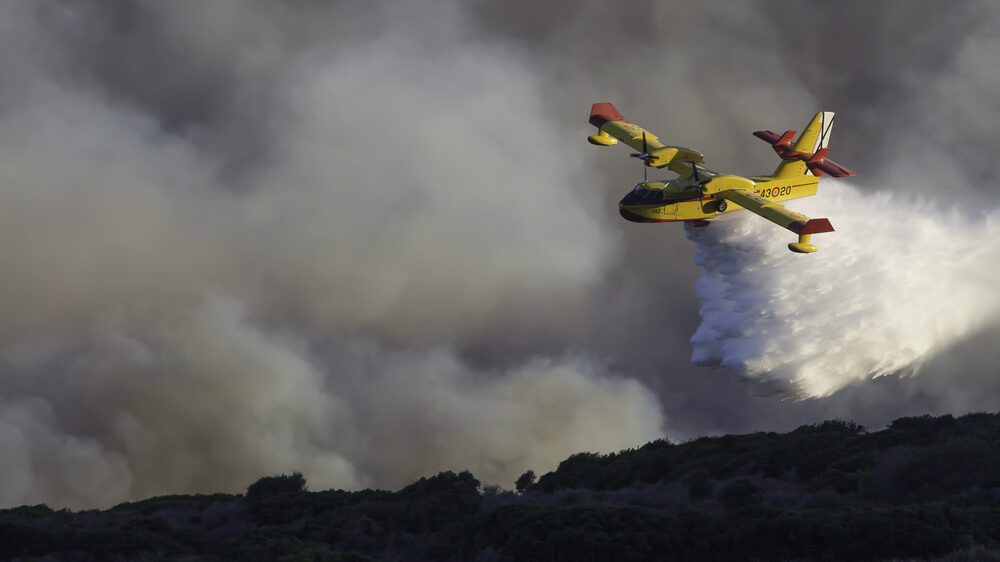EU doubles firefighting fleet in preparation for wildfire season
- May 31, 2023
- 12:17 pm


Iain Hoey
Share this content
Ahead of the upcoming wildfire season, the European Commission plans to increase its firefighting plane count to 28, effectively doubling its current fleet, according to an announcement made by EU Crisis Management Commissioner Janez Lenarčič during a press conference in Brussels on Tuesday (30 May). According to EURACTIV, the decision comes in response to a surge in extreme weather-related events due to the escalating climate crisis.
During the press conference, Lenarčič recalled last summer as a season with a record number of wildfires in Europe, which led to an unprecedented number of requests for assistance and required a significant deployment of assets from the EU’s Emergency Response Coordination Centre (ERCC).
The ERCC is a key player in crisis management for the EU, coordinating assistance and resources during calamities and supporting the EU’s civil protection mechanism.
Additionally, the Commissioner elaborated on the role of the RescEU capacity, an emergency reserve designed to offer a robust response in times of crisis. This reserve includes medical supplies, COVID-19 vaccines, and resources for handling chemical, biological, radioactive or nuclear crises, such as iodine tablets.
The upcoming wildfire season will see the RescEU reserve of firefighting aircraft bolstered to 28 units, comprising 24 planes and 4 helicopters from 10 EU member states. The fleet will include contributions from Croatia, Cyprus, France, Germany, Greece, Italy, Portugal, Spain, Sweden, the Czech Republic, and Greece.
Lenarčič also noted that the EU will rely on a specialised firefighting force consisting of 400 personnel from France, Portugal, and Greece. This strategic move is aligned with the EU’s commitment to enhancing its civil protection capacities, as voiced by European Commission President Ursula von der Leyen last September.
The Commissioner further shed light on plans to develop a permanent fleet funded by the EU budget to augment firefighting capabilities. The arrangement will eventually relieve member states from committing their existing resources to the fleet and lessen the burden on national capacity.
Lenarčič confirmed that all 28 planes will be financed by the Commission during the fire season, spanning mid-June to the end of October. He cautioned that the transition from the current fleet to a permanent one would take significant time, particularly for the medium amphibious aircraft.
Finally, Lenarčič disclosed plans to introduce newly-built Canadairs into the fleet in the coming years. EURACTIV reported that these tanker aircraft are expected to become operational by 2027, with the full fleet anticipated to be in service by 2030.



